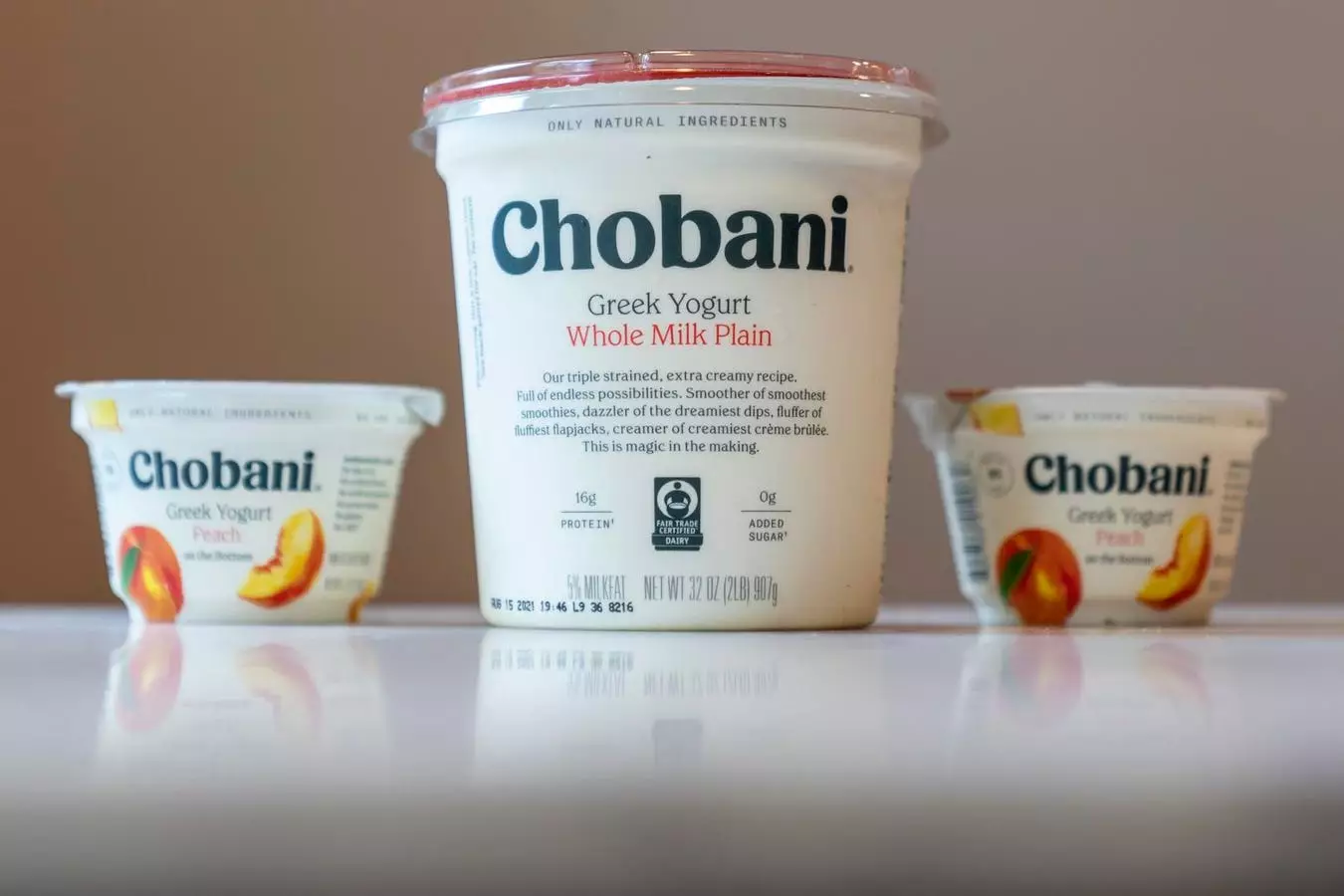In a world rattled by uncertainty and economic strife, Hamdi Ulukaya, the celebrated founder of Chobani, stands as a beacon of optimism. His commitment to uplifting the agricultural landscape is underscored by an audacious $1.2 billion investment aimed at constructing state-of-the-art dairy plants in upstate New York and Idaho. This venture is not merely about expanding production; it is about reshaping the narrative surrounding food sustainability, health, and community prosperity. As someone deeply embedded in the food industry, I am invigorated by Ulukaya’s vision, which goes beyond business; it underscores a profound responsibility to nourish society.
Ulukaya’s initiatives come at a pivotal time for the Northeastern dairy industry, where many farmers grapple with dwindling opportunities. The shift of larger food corporations towards expansive operations on the West Coast leaves local producers in dire straits. Ulukaya’s investment offers more than just economic relief; it symbolizes a return to localism and resilience. His dedication to fostering an environment where good food is accessible to everyone resonates with an essential truth: nutritious food ought not to be a privilege but a fundamental right. “We could make all the advances in life, but if we can’t feed our children good food, that’s not a success,” he remarks, encapsulating the heartfelt philosophy that guides his enterprise.
Political Climate and Public Health Decisions
Meanwhile, the political landscape surrounding food regulations is becoming increasingly complex. Recent decisions to ban fluoride in drinking water in states like Utah and Florida ignite fierce debates. Although public health experts have voiced strong opposition, the wave of skepticism about fluoride persists. Robert F. Kennedy Jr., a central figure in this discourse, is advocating for a reevaluation of fluoride’s necessity, encouraging a shift in public health policies. This kind of radical change could significantly impact the way communities perceive traditional health practices.
This intersection of politics and public health highlights a growing concern about the integrity of our food systems. The Food and Drug Administration (FDA) recently faced layoffs, which some argue might undermine the agency’s ability to ensure food safety during a time when vigilance is needed most. This precarious backdrop necessitates leaders like Ulukaya who are willing to invest not just in their businesses, but also in the systems that fuel our society’s health and well-being.
Food Dye Controversy and the Quest for Transparency
In the realm of food production, we also see a push towards eliminating synthetic food dyes, largely driven by advocacy and public demand for transparency. Inspired by this movement, Ulukaya’s connection to the complexities of food production underscores the need for reform. As someone who has stepped into the halls of flavor and fragrance giants, witnessing the behind-the-scenes of food manufacturing—complete with its petroleum-based additives—has deeply influenced my advocacy for simpler, cleaner ingredients. This progressive mindset is necessary, as consumers increasingly refuse to accept a food system shrouded in artificiality and deceptive practices.
The conversation about synthetic food dyes extends beyond mere preference; it taps into the broader issues of health risks and consumer rights. It’s imperative for food producers to proactively engage with their customers, fostering an environment of trust and open communication. By stepping away from harmful additives, companies not only enhance their products but also redefine their responsibility to consumers. This shift is not merely a matter of company image; it’s a necessity for the health and sustainability of future generations.
Empowering Future Generations of Food Leaders
During a recent talk at Harvard Business School, which revolved around my book “Raw Deal,” I urged budding entrepreneurs to rethink the structure of the food industry. The students, inspired yet questioning, are the next wave of leaders who will redefine what our food systems can achieve. The lessons I shared emphasized that building infrastructure for equitable food production should take precedence over pursuing rapid financial gains.
Future leaders in food should envision operations that promote accessibility and sustainability. This could manifest through innovative financing models that prioritize long-term community health rather than immediate profits. The call for a public food sector is crucial as we confront the ramifications of climate change, necessitating collaborative efforts that place community needs at the forefront.
We inhabit an era where collective responsibility is paramount—not just for individual success, but for the good of all. The challenge laid before us is to instill these values in every layer of our food systems, ensuring that every investment made today fosters a healthier, more sustainable tomorrow.


Leave a Reply